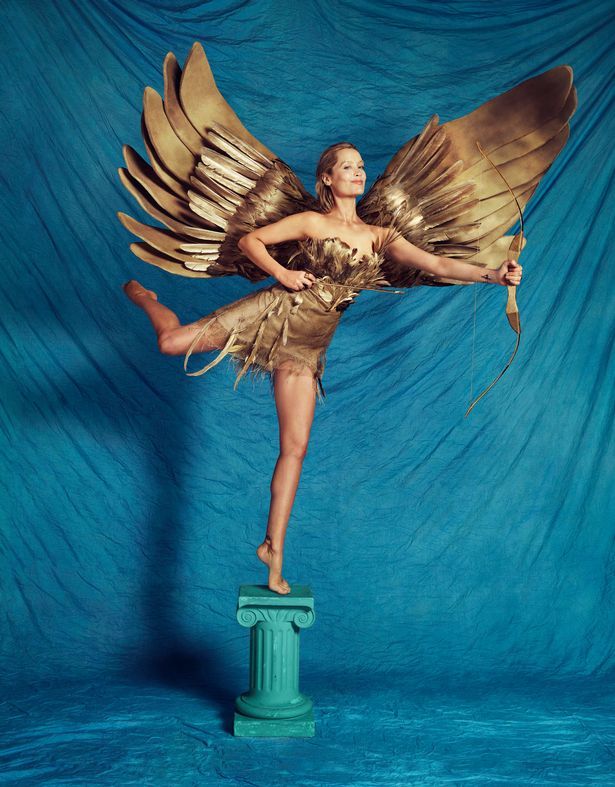At our latest IHALC breakfast, ITV Creative’s ECD Tony Pipes shared his approach to leading an in-house creative department
For our latest IHALC Breakfast Briefing, in partnership with Adobe Workfront, we focused on the role of the creative director in-house. We were joined by ITV Creative ECD Tony Pipes who gave us a fascinating glimpse into his role leading an in-house team that has grown from a studio producing clips and trails to a full-service agency. We’re sharing some key insights from the session.
Tony joined ITV in 2012 having previously been at the BBC and then Red Bee Media, the independent agency created out of BBC Broadcast. He came in to work with CMO Rufus Radcliffe who had recently joined from Channel 4 with a mission to reinvigorate the ITV brand. After launching a major rebrand of the network, Pipes spent his first two years at ITV building the in-house agency that ITV Creative has become.

Tony Pipes, ECD at ITV Creative
The Thing of All Things
A vital part of that transformation was securing the support and buy-in of stakeholders across the business, including programme-makers, commissioners, writers and even the talent themselves. ITV Creative introduced an agency model, with account managers, a formal briefing process, pitching and new rules for feedback and sign-off. The new ways of working were developed in conjunction with stakeholders and set down in a document which became known as “The Thing of All Things”. Tony describes it as “a process document that takes us from brief to delivery, letting everyone know what is supposed to happen and when – so when we receive feedback, how soon we respond, when we have sign-off. It’s like a master timeline”. Such a document can be invaluable for an in-house team as it addresses so many of the key challenges around priorities, timings, feedback and sign-off that can plague IHAs.
Building trust
This is such a key factor for all in-house agencies as they grow and a particular concern for a creative director who needs to convince colleagues that the IHA can deliver the work the business needs. Time and again, Tony came back to ‘building trust’ as the key to ITV Creative’s development. With stakeholders who themselves are creative – writers, directors, heads of drama etc – Tony had to convince them that ITV Creative had the ability to do justice to the programmes it would be promoting. Initiatives such as spending a week with the Coronation Street team in Manchester helped Tony understand their needs as well as helping the soap’s production team see him and the agency as partners who loved the programme and wanted to make the best possible work for it. Inviting stakeholders such as commissioners into the agency to talk about what they do also helped build trust in the agency and break down silos.

As part of its Love, We Own it! campaign for Love Island, ITV Creative recreated iconic love statues with Laura Whitmore (Eros), Faye Winter and Teddy Soares as Rodin’s Kiss, Paige Turley and Finley Tapp as Glasgow’s Wincher’s Stance
Pitching and preserving the magic
While some cite the lack of pitching as a great advantage of in-house life, Tony sees pitching as an essential part of the process and believes that the sense of theatre it involves helps retain some of the essential ‘magic’ around creativity that is important to preserve. An in-house strategy team helps build a rationale for creative ideas while the agency also makes regular use of ITV Village, an online focus group of 12,000 people, with which it can research ideas at script stage, key art and finished campaigns.
A love of TV
Tony told us that a genuine love of TV is essential for anyone coming to work on his team. Being excited about the programmes and how they are made not only results in better work but also helps build relationships with stakeholders. Talent is attracted to ITV Creative because of the chance to work on huge cultural brands but also because, in contrast in agency world, a very high proportion of ideas get made and seen by the public. A priority for Tony has always been to have a very diverse team which reflects the audience the work is made for – ITV Creative works with the Creative Access organisation to help bring in diverse talent and also runs programmes with local schools to raise awareness of creative careers.
Talking, talking, talking
Throughout Tony’s session, what came through consistently was the need for an in-house Creative Director to be constantly talking with stakeholders, building and reinforcing trust. As the face of the IHA, the Creative Director is the key advocate of the IHA. Of course it’s essential to have a great relationship with the marketing team, but the IHA also has to represent the agency to the wider business. This can be via formal presentations of work and results, but the in-house CD also needs to be brilliant at building the personal relationships that result in genuine collaboration.
Our thanks to Tony for such a brilliant session.
